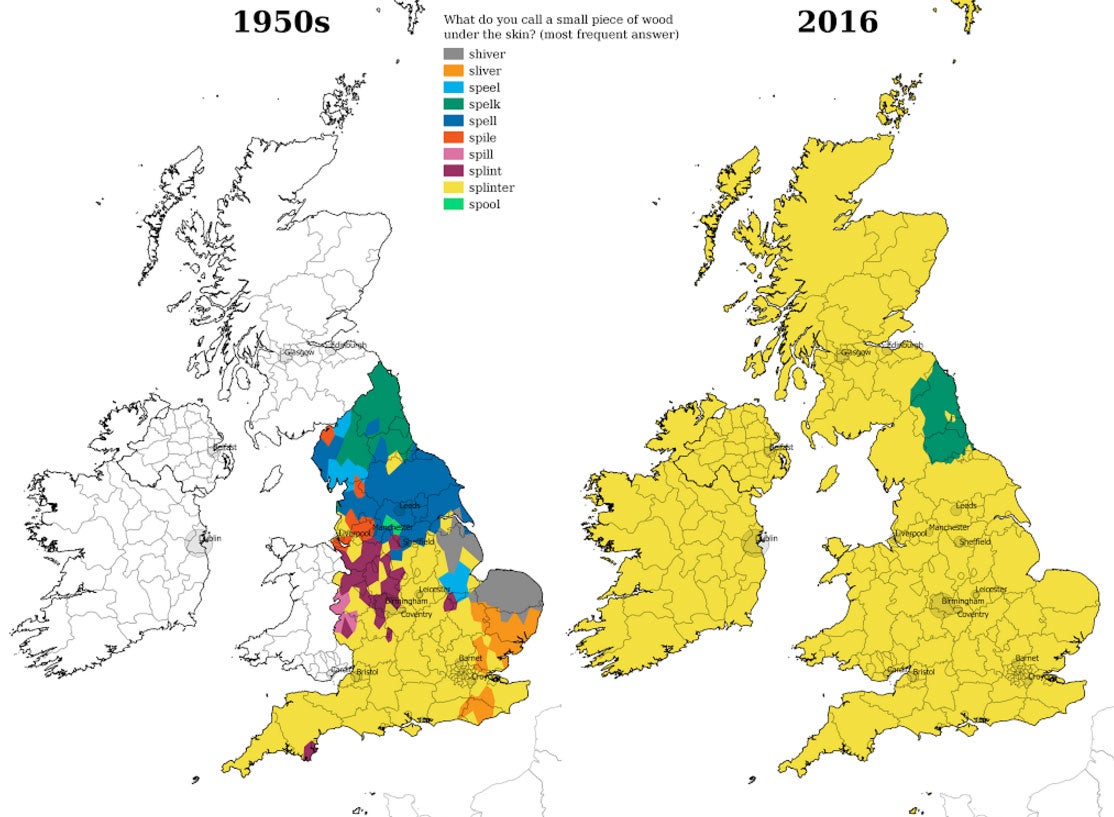English accents are slowly becoming more southern, study finds
But some parts of the country, particularly in the North East, have held on to their accents

Your support helps us to tell the story
From reproductive rights to climate change to Big Tech, The Independent is on the ground when the story is developing. Whether it's investigating the financials of Elon Musk's pro-Trump PAC or producing our latest documentary, 'The A Word', which shines a light on the American women fighting for reproductive rights, we know how important it is to parse out the facts from the messaging.
At such a critical moment in US history, we need reporters on the ground. Your donation allows us to keep sending journalists to speak to both sides of the story.
The Independent is trusted by Americans across the entire political spectrum. And unlike many other quality news outlets, we choose not to lock Americans out of our reporting and analysis with paywalls. We believe quality journalism should be available to everyone, paid for by those who can afford it.
Your support makes all the difference.Regional accents across England are slowly fading, and are being replaced nationwide with a more 'southern' way of speaking, according to research.
The accent data was gathered from 30,000 users of the English Dialects app, created in January by Cambridge University academics, and compared to the results of a dialect survey carried out in the 1950s.
People from across the country answered the survey through the app, which asked them to specify how they said certain words like 'scone', and how they referred to certain things, like a 'splinter'.
The app has been in use for a few months, taking in the accents of people from 4,000 cities, towns and villages across the country.
After analysing the results, the researchers have found that more people speak with accents similar to those in London or south-east England than they did 60 years ago.
"When it comes to language change in England, our results confirm that there is a clear pattern of levelling towards the English of the south-east," said Dr Adrian Leeman, a Cambridge researcher who worked on the project.

"More and more people are pronouncing words in the way that people from London and the south-east do."
The University of Bern's Professor David Britain, another researcher, said: "People in Bristol speak much more similarly to those in Colchester now than they did 50 years ago. Regional differences are disappearing, quite quickly."
A few parts of the country are holding out, however. Newcastle and Sunderland, in the North East, stood out as areas where local words and pronunciations still dominate.
Northern ways of speaking may even be spreading down the country - the pronunciation of words like 'last' with a short vowel, rather than a long one, is typically a part of northern accents. But the study found it is now common in the Midlands and the West Country, even though it wasn't traditionally a part of the accents in those areas.
As well as shedding light on the changing way we speak, the information gathered through the app will now allow current English dialects to be compared with those in Scotland, Wales and Northern Ireland, countries which were not surveyed in the 1950s study.
Tam Blaxter, a Cambridge PhD student who worked on the analysis, believes the 'levelling' of English accents may be due to increased mobility.
People move around the country for work and education a lot more than they did 60 years ago, exposing them to a much wider range of accents.
Analysis of the survey results will continue, as the researchers look at the social reasons behind the 'flattening' of accents in England.
Join our commenting forum
Join thought-provoking conversations, follow other Independent readers and see their replies
Comments